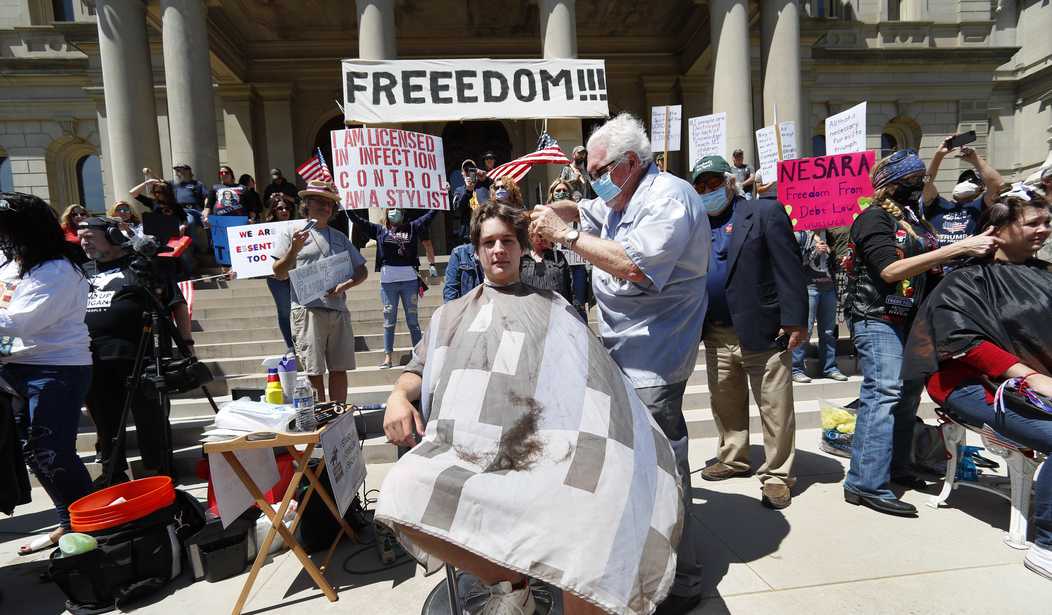Are you collecting unemployment benefits? If you said “no,” don’t be so sure. You might be collecting unemployment benefits without even realizing it.
Or, at least, your name is.
A rash of fraudulent unemployment claims has broken out all over the country, and it is potentially costing employers, state unemployment trust funds, and, most importantly, ordinary people whose identifies are being stolen. Once states re-open and people can return to their jobs, the best way to reduce those identity thefts and fraudulent unemployment claims is to allow the $600 federal benefit to expire as scheduled.
The Maine Department of Labor recently had to cancel 16,000 initial unemployment claims, and more than 28,000 continued unemployment claims, because of the alleged fraud. The state is at the point where it is has canceled as many fraudulent claims as it received last week, and is reviewing another $49 million in claims beyond the $13 million of fraud already detected. For Mainers who are legitimately unemployed and filing weekly claims for benefits, this fraud represents a slowdown of services and a potential drain on the state’s trust fund, reducing solvency and potential availability for the truly needy.
While Maine’s issues are drastic and well-publicized, they are hardly unique. Washington state suffered as much as $650 million in fraudulent claims to a Nigerian fraud ring and has thus far managed to recover just $333 million. Rhode Island State Police were recently forced to open an investigation into unemployment fraud in the Ocean State, and they were soon after joined by federal law enforcement. By mid-May, Oklahoma had nearly 11,000 fraud cases. A memo sent out by the Secret Service indicated North Carolina, Massachusetts, Wyoming, and Florida were also targeted.
Recommended
This cannot be a surprise following the enactment and implementation of the CARES Act and the Families First Coronavirus Response Act (FFCRA), federal legislation passed to reduce economic pain from the COVID-19 pandemic. One key element was the creation of a $600 pandemic unemployment assistance benefit for individuals laid off due to state-enforced economic shutdowns, but also for occupations traditionally ineligible for unemployment, like various independent contractors. This federal benefit was grafted onto existing state unemployment systems. As a result, states had to create all new systems and infrastructure to distribute the federal payment.
In the case of non-traditional workers, the two most common fraud prevention measures, employer auditing, and self-reported employment status were difficult—if not impossible—to enforce. States had no experience with this type of applicant, no employers to check against, and few resources to verify the validity of an individual’s claim. Add on top of that the record influxes of typical claims that had to be processed and the high fraud incentive the $600 payment provided, and exploitable gaps became apparent.
Of course, improper payments were a plague on state unemployment systems even before the pandemic. The nationwide improper payment rate for unemployment benefits was more than 10 percent in 2019, before the massive influx of claims caused by COVID-19. In 2016, Ohio found it had paid unemployment benefits to more than 1,500 prison inmates. Between 2011 and 2015, New Jersey found more than $320 million in claims by people who were working. From 2014 to the third quarter of 2015, Florida found $529 million of fraud.
One potential long-term and permanent solution to reduce general fraud would be for states to run automatic cross-checks of their unemployment claims against existing databases that would cover the kinds of improper payments these states found: the National Association of State Workforce Agency’s Integrity Data Hub, the Health and Human Services’ National Directory of New Hires, and states’ incarceration records.
On the matter of COVID-19-inspired fraud, the answer is simpler. States are starting to reopen. Also, regardless of the various qualifiers produced by the media, unemployment ultimately decreased in May, a pleasant surprise for those who expected it to increase. The $600 pandemic unemployment assistance benefit is slated to expire on July 31—and should. By then, many states will likely be almost fully re-opened, and individuals would be expected to return to work, as was always the plan.
The best possible solution to stop the kinds of fraud that state unemployment systems are experiencing is to eliminate the incentive to commit it. If further economic stimulus is required, that is a separate question that should be examined outside of unemployment.
Joe Horvath is a senior fellow at the Foundation for Government Accountability

























Join the conversation as a VIP Member